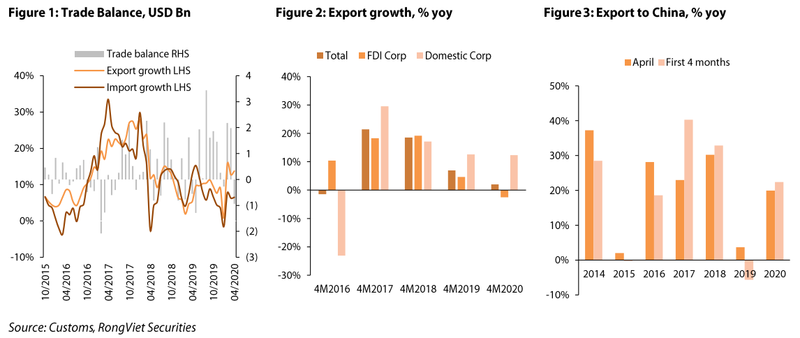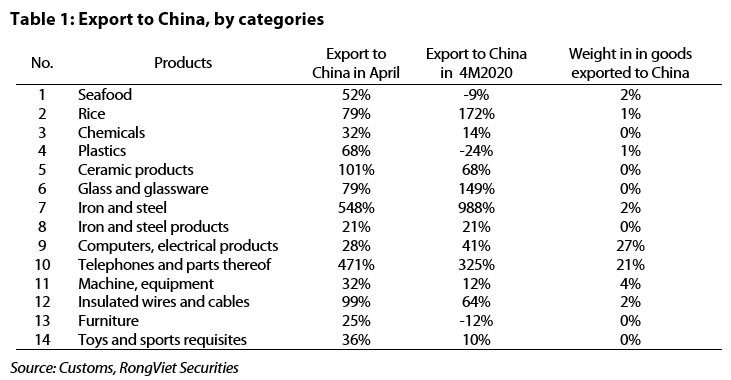Europe’s lockdown easing plans help boost Vietnam integration in global supply chain
Since March, Vietnamese manufacturers have managed to fill the supply shortages left behind by China, resulting in a positive trade surplus of US$2.78 billion in January – April.
Vietnam is in front of bigger opportunities to delve into the global supply chain as European countries are easing lockdown measures, according to Viet Dragon Securities Company (VDSC).
“While it will take time to get manufacturing back to work in those countries, Vietnamese manufacturers have the capacity to meet foreign demand and supply goods to the biggest consuming markets,” asserted VDSC in its latest report.
The country has just gone through a difficult period in April when the nationwide social distancing order was in place. This resulted in slowdown of the majority of economic activities and employees were forced to stay at home on furlough.
However, looking at the data, there are signs of a promising recovery as the country can benefit from the current supply chain disruption.
In April, Vietnam’s trade dropped by 13% year-on-year. Exports and imports dropped by 14% and 12% year-on-year. The trade balance was in a deficit of US$940 million, dragging the trade surplus of the first four months down to US$2.78 billion.
Nevertheless, export revenue grew at an annual rate of 2% in the four-month period, while import growth was slightly below zero.
FDI companies suffered the worst as their export revenue tumbled 21% year-on-year last month while that of domestic ones stayed flat. In the January – April period, domestic firms performed well and recorded export growth of 12.3% year-on-year, but the FDI sector's exports were down 2.6%.
By categories, most of key products experienced a plunge in export revenues in April. Textile, wood and furniture, electrical and electronic products, fishery saw poor results as export orders were canceled or postponed dramatically due to the European countries’ lockdown/stay-at-home orders.
However, Vietnamese exporters found out a way to ease the pain as exports to China climbed since the last week of March. As previously noted, there was a US$2 billion of trade surplus in March because Vietnamese manufacturers filled the supply shortages as China was at the early stage of restart.
That continued in April as there is a list of fourteen categories of products that enjoyed a high growth of exports to China. Overall, Vietnam’s exports to China increased 20% year-on-year in April and 22% in the January – April period, in contrast to negative growth to other markets.
Smartphones and parts thereof were key contributors whose exports to China rose five-fold in April to US$753 million. The subgroup of computers, electrical products, accounting for 27% of total export revenue to China, increased by 28% year-on-year last month. Notably, iron and steel producers saw a sharp increase.













